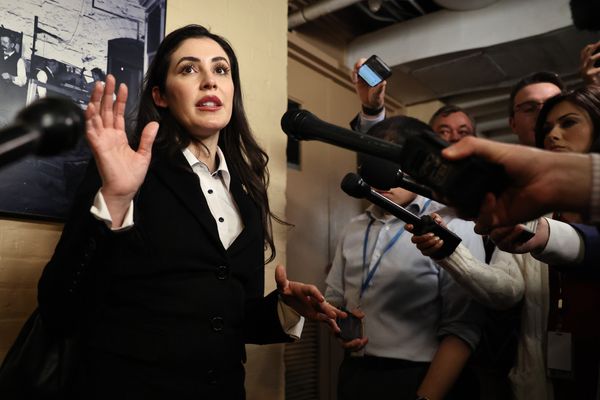
Labour will pledge to restore thousands of community officers such as Happy Valley’s Catherine Cawood, saying the local knowledge to tackle antisocial behaviour, violence against women and gang culture has been lost under the Tories.
Citing the BBC character as an inspiration, Yvette Cooper will say the Conservatives have “walked away” from community policing and taken a “laissez-faire approach” to vetting and police recruitment.
Labour will legislate early in government for a new inspection framework for neighbourhood policing, the shadow home secretary will say, putting 13,000 more officers and PCSOs back on the streets with new statutory responsibilities on forces to protect neighbourhood policing.
Cooper will say that policing has become a “reactive, crisis-response service” rather than embedded in community knowledge and able to take preventive action. “Half the country say they never see the police on patrol any more – that proportion has doubled since the Conservatives came to power.”
In a major policy speech at the Institute for Government, the shadow home secretary will announce a neighbourhood policing guarantee which will see forces redeployed locally to focus specifically on town centre patrols and a presence in bars, pubs and community spaces.
She will say the aim will be an extended presence of officers in town centres to act as a deterrent against antisocial behaviour, as well as in schools to identify young people at risk of being drawn into gangs.
Neighbourhood teams would also be expected to increase work on violence against women, working with local councils on street safety and with pubs and clubs.
“You cannot rebuild trust and confidence in the police without rebuilding neighbourhood policing,” Cooper will say.
Acknowledging that a number of scandals have meant collapsing faith in the police – including the murder of Sarah Everard by the serving officer Wayne Couzens, and the multiple rapes by David Carrick – Cooper will say only those officers with local connections could rebuild trust.
She will say the new patrols would be “drawing on the traditional core of British policing – the bobby on the beat who everyone knows – but modernised for a new age, equipped with new training and technology so they can use data to target hotspots, react quickly, and build partnerships to solve problems”.
Cooper will say she had met inspiring neighbourhood officers who worked best when they intimately knew their beat. “The officer who was working with troubled primary schoolchildren to stop them going off the rails – he knew whose dad was in prison, who didn’t feel safe at home, and the problems those kids faced and how to help get them back on track,” she will say.
“Catherine Cawood may be fiction. But the stories of police officers like Catherine who know their communities, who pick up the things that everyone else misses to solve crimes and keep people safe, are very real. And we need more of them.”
Cooper’s speech will also take aim at policing standards under the current Home Office. She will say ministers “walked away” after austerity hit policing, prevention and the court system hard, and say it was a “strategic decision” to fragment local policing.
“There has been a complete collapse in Home Office leadership on crime and policing. They’ve stood back while neighbourhood policing crumbled, while the charge rate plummeted and while confidence fell,” she will say.
“Even where neighbourhood police teams have stayed in place, officers are often expected to cover bigger areas or to merge with response teams. The people who were the eyes and ears of policing in communities have gone. The people who solved local problems are now rarely there.”
Nationally, just 12% of full-time police officers are designated as in neighbourhood roles – down from 19% in 2015, a drop of 6,000 police officers. The number of police community support officers has halved since the Conservatives came to power in 2010.







